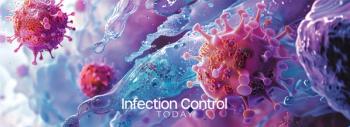
Study: Treatments for Hep C Improving
WASHINGTON, D.C. - A committee convened by the National Institutes of Health (NIH) has found that treatment for the hepatitis C virus (HCV) has significantly improved during the past five years.
Sustained response rates have reportedly increased from 15 percent to 50 percent from treatment with combination therapies. Specifically, interferon and the antiviral drug ribavirin have improved the treatment of patients dramatically.
HCV, which is the leading cause of liver disease and liver cancer, has infected an estimated 4 million Americans.
Information from www.azcentral.com
Newsletter
Stay prepared and protected with Infection Control Today's newsletter, delivering essential updates, best practices, and expert insights for infection preventionists.



